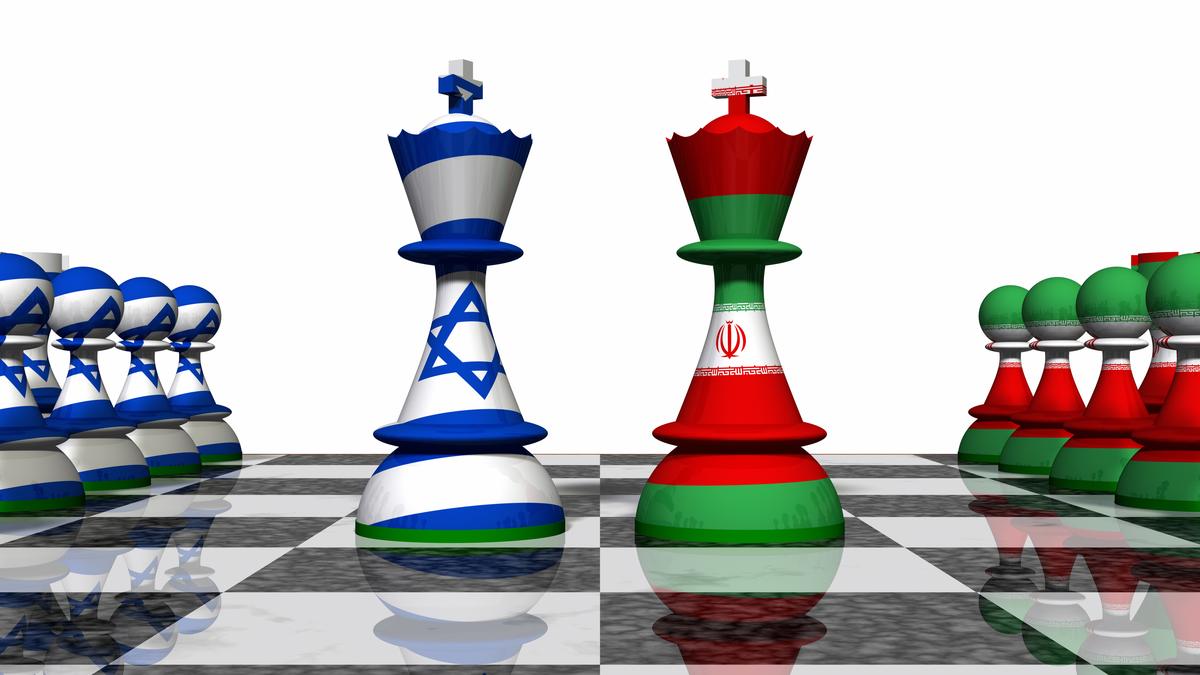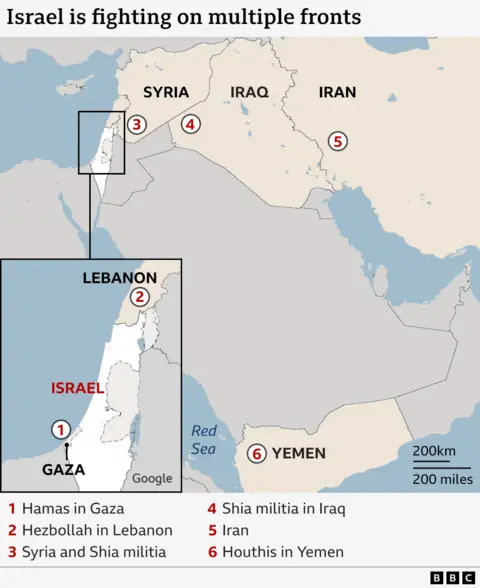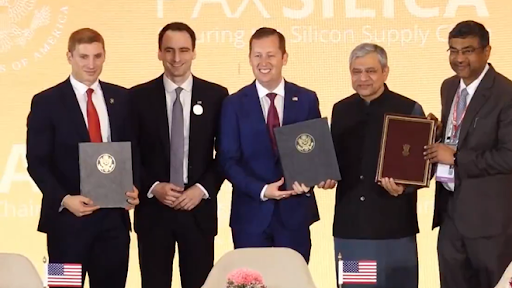



The Israel-Iran ceasefire, brokered by the U.S., marks a new phase in the West Asian conflict. While Israel and the U.S. claim military victory, managing the blowback is critical. The future depends on containing Iran’s ambitions and resolving the Palestine issue, with the risk of returning to cyclic conflicts.

Copyright infringement not intended
Picture Courtesy: THE HINDU
Following the Israel-Iran ceasefire, the region faces a precarious future dependent on the actions of Iran, Israel, and the U.S.
Following a high-intensity 12-day conflict involving direct aerial exchanges between Israel and Iran, a ceasefire was announced by U.S. President Donald Trump.
All three main actors—Israel, Iran, and the U.S.—are publicly claiming success. Israeli Prime Minister Benjamin Netanyahu asserts that the war goals were achieved, including setting back Iran's nuclear program. Iran's defiance, demonstrated by its missile capabilities, allows it to project resilience. President Trump has positioned himself as the dealmaker who prevented a wider war.
Israel Defense Forces (IDF) achieved several military objectives over the 21 months regional conflict. These include:
 Despite significant setbacks, including damage to its nuclear program and the assassination of key military and scientific personnel, Iran has shown it can penetrate Israeli air defenses with older-generation missiles, suggesting it may be conserving more advanced weaponry for a potential protracted conflict.
Despite significant setbacks, including damage to its nuclear program and the assassination of key military and scientific personnel, Iran has shown it can penetrate Israeli air defenses with older-generation missiles, suggesting it may be conserving more advanced weaponry for a potential protracted conflict.
A major challenge for the U.S. and Israel is managing Iran's future. The goal of installing a friendly, West-leaning regime in Tehran is seen as a primary objective to establish a comprehensive "Pax Americana" and control regional hydrocarbon resources.
The ceasefire is a temporary pause, not a resolution. Several critical issues could easily lead to renewed conflict.
Iran's Leadership and Nuclear Ambitions
Succession => The question of who will succeed the 86-year-old Supreme Leader, Ali Khamenei, is critical. The two likely front-runners are his son, Mojtaba Khamenei, who represents continuity, and Hassan Khomeini, the grandson of the Islamic Republic's founder, who may offer a more moderate path.
Nuclear Program => While President Trump and Prime Minister Netanyahu have claimed Iran's nuclear option is "destroyed," a U.S. intelligence report suggests the program has only been set back by a few months. In response to international pressure, Iran's parliament has voted to consider halting all cooperation with the International Atomic Energy Agency (IAEA), which would escalate tensions significantly.
Unresolved Israel-Palestine Dispute
Gaza's Humanitarian Crisis => With the conflict with Iran paused, the IDF is expected to refocus on Gaza. The situation there is desperate, with reports of mass starvation and high civilian casualties.
West Bank Instability => The occupied West Bank faces a deteriorating situation due to settler violence and a long-stalled political transition for the Palestinian Authority.
Israel's Internal Political Situation => The end of the war will likely bring renewed focus on domestic issues within Israel. The demand for the release of remaining hostages is expected to intensify, and Prime Minister Netanyahu's governance and suspended corruption trial may come under renewed scrutiny.
If Iran, Israel, and the U.S. avoid triumphalism and shift their focus toward moderation and nation-building, a period of peace and stability is possible. This could lead to lower oil prices, smoother global logistics, and reduced radicalization.
Without addressing the core issues—the Palestinian conflict, Iran's nuclear program, and deep-seated regional animosities—the recent ceasefire will likely be just another break before the next, potentially more disruptive conflict.
Must Read Articles:
The Iran-Israel Conflict & Impact
Israel-Iran Strike & the Rise of the Third Nuclear Age
Israel-Iran Strike Regional Tension
About Israel Attack & International Law
Source:
|
PRACTICE QUESTION Q. Analyze the challenges and complexities for Indian foreign policy in maintaining its strategic autonomy while navigating the deepening conflict between Israel and Iran. 150 words |




© 2026 iasgyan. All right reserved